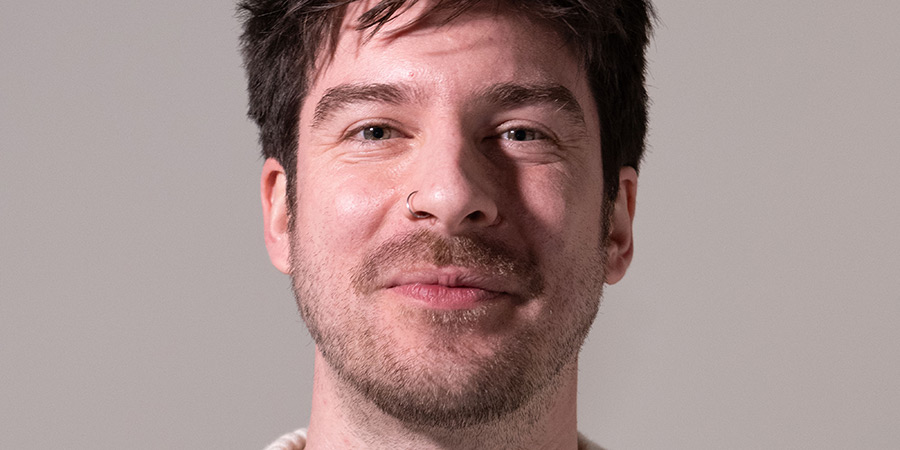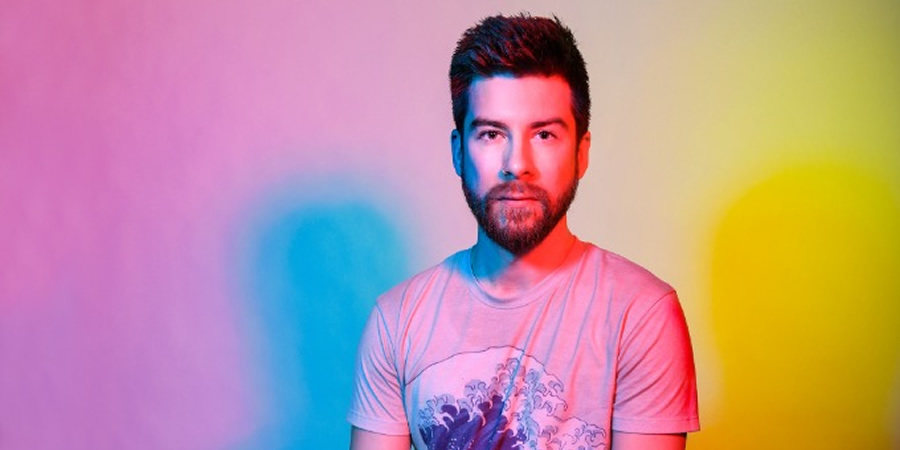Richard Stott on the obstacles that comedians with disabilities have

Comedians with disabilities have enough obstacles in the comedy world, I find it laughable that one of them is being told we talk about them too much.
"I'm a comedian who happens to have a disability, not a disabled comedian": a phrase I've had to use a few times in my brief career as a stand-up. I don't get wound up when people describe me as a "disabled comedian" in a show description or an article, but I do make a point of correcting the phrasing.
I have a condition called Poland Syndrome affecting my left hand and, naturally, I have drawn on this experience for my work. However, at the mere mention of disability I've found you have to accept some specific pressures and expectations that others don't. So let's talk about a few of them.
Pigeonholed
People naturally want to put people in boxes, it's what we do, it's how we organise the world and I've quickly found myself pigeonholed as a "disabled comedian".
Now, I've found that as soon as you are pigeonholed as this, people expect a certain type of comedy from you. Often there's an assumption that your style of comedy will be akin to a funny inspirational Ted Talk. I can only speak for myself, but my comedy certainly isn't that. Despite this, I've even had people assume it was going to be a family friendly show.
I've lost count of the number of interviews I've done where the lead question has been "How does it feel to inspire people?" ... Do I? I've never intended to. Would they be asking that to a comedian without a disability? No.
Often when I'm lucky enough to get a mention in the press the content is dominated by a description of my condition rather than about my style of comedy. It 'others' us. It puts us in a special category of "disabled comedian" and no matter what comedy we're actually coming out with we're seen as a bit different, not commercial enough... a risk.
Another setback to getting pigeonholed into the disabled comedian category is there can be a cynicism to your achievements from some. People have a question in their heads of whether we've managed to get our TV credits through merit or to fill diversity quotas. I know this because they regularly tell me so online, and I respond agreeing with them... which winds them up more.

The minefield of accessible venues
As an act who touches upon disability there is a pressure... almost an obligation... to perform exclusively at accessible venues, but this is far harder than it sounds.
The few accessible venues there are at the Edinburgh Festival tend to be in paid venues which not everyone (let's face it, most of us) can afford to hire out. Unfortunately, a lot of accessible venues across the industry generally tend to be an afterthought, away from the buzz of the main hub, in a conference room with all the atmosphere of a tupperware box.
On one occasion, I was asked by a festival that won't be named if I wanted to change my venue to their new accessible venue which was - I shit you not - a large storage cupboard, a few chairs and a mic stand in it. I responded to this by telling them this wasn't a venue and if they wanted to help the disabled community, feel welcome do better than putting them in a cupboard.
In short, playing an accessible venue will likely cost the comedian more either in hire fee or sales due to lower footfall. I sadly can't commit to playing an accessible venue at the fringe this year, and I've of course thought about how this looks. I've seen other comedians with a disability take flack for playing venues that don't have great access but, considering the difficulties, I think it's unfair.
Again, no able-bodied comedian would be taking the same level of criticism for it but also there's something else that bothers me: If you put all the comedians who have a disability in the accessible venues then you have a situation where people with access needs can only see comedy from comedians with disability... Do we see an issue here yet?
To talk about it or not
I've been told to play on my disability more, I've been told I should talk about it less... one actually very nice review said I should "put my personal circumstances in the done folder" which was meant kindly but... Really?!
Let's be clear here, comedians draw humor from their experience of the world, just because I did a show about my disability in 2019 it doesn't mean I ceased to experience the world from the lens of a disabled person. If it comes up, it comes up, but you see how there's an added pressure to not talk about it for fear of being seen as one dimensional. This level of scrutiny isn't really given to other subjects; it's worth noting... "Have you thought about doing comedy that isn't about being [insert a gender, race or sexuality here]" ... imagine.
Talking about things like disability onstage and allowing people to find humor in it is so important, it would be a real shame if comedians felt they had to reign this in. I've felt the need to do it myself to be taken seriously, as if getting big laughs from my experience as a disabled person is some sort of cheat code.
In recent months I've just had to learn to put people's opinions out of my head and write freely, but I do wish I hadn't had to feel this pressure. Comedians with disabilities have enough obstacles in the comedy world, I think it's laughable that one of them is being told we talk about them too much.
So dear reader, I hope to see you at the Fringe and I promise you that my offerings onstage will be much lighter than the last one thousand words. I'm aware that, so far, I've listed all the problems and offered no solutions and I'm sorry this hasn't been the funniest article... but I hope if you've read this I hope you'll have acknowledged these underlying constraints we feel and see the need for change.
The change is as simple as this: Comedians with disabilities just need to be seen as comedians. That's all. Judge us on our comedy not on our disability. Don't worry that if you come to one of our shows the whole thing will be about disability; it won't be. I can attest that this year my show contains everything from people having meltdowns in coffee shops, to terrible things I did on the game The Sims 2... and, yes, within that my disability is mentioned from time to time.
Help us publish more great content by becoming a BCG Supporter. You'll be backing our mission to champion, celebrate and promote British comedy in all its forms: past, present and future.
We understand times are tough, but if you believe in the power of laughter we'd be honoured to have you join us. Advertising doesn't cover our costs, so every single donation matters and is put to good use. Thank you.
Love comedy? Find out more
